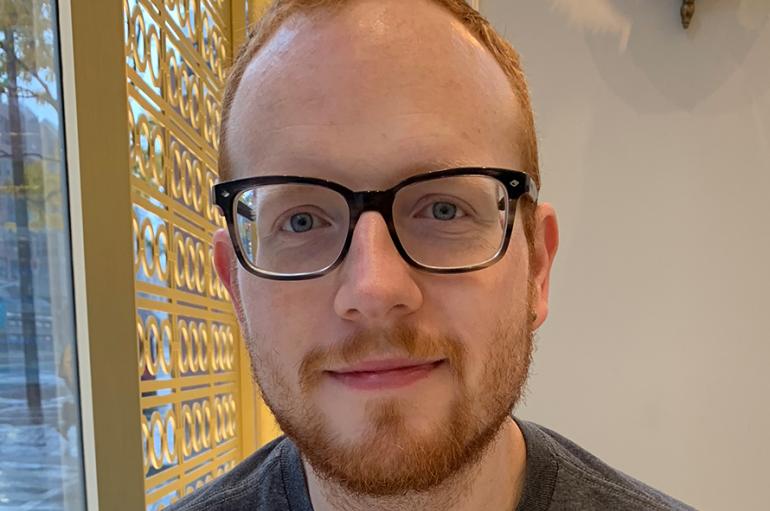
PhD student Jon Bullock the Religion, Music, and Sound Section of the Society for Ethnomusicology. Awarded every year to a current student who presented at the Society's Annual Meeting. The award recognizes the best student paper at the annual meeting that engages with religion through the lens of ethnomusicological research.
Bullock's paper is titled "Internalized Prejudice, Shifting Narratives: The Contemporary Erasure of Islam in Iraqi Kurdish Retellings of Music History." Drawing on close readings of contemporary Kurdish music history texts and ethnographic interviews, Bullock's paper examines the ways Kurdish musicians and music historians navigate the relationship of Kurdish music to Islam. Read the complete abstract of Bullock's paper below.
Congratulations, Jon!
Abstract
"Internalized Prejudice, Shifting Narratives: The Contemporary Erasure of Islam in Iraqi Kurdish Retellings of Music History"
Since 9/11, public discourse in the West has produced a general understanding of Islam as a monolithic entity devoid of vitality or complexity. For Iraqi Kurds, however, relationships with and toward Islam remain multi-faceted and varying. In addition to anti-Islamic discourse in the West, the contemporary relationships between Iraqi Kurds and Islam have been shaped by Turkish and Iranian state support for local sectarian groups; the aftermath of Anfal, Saddam Hussein’s Kurdish genocide campaign that received its name from a chapter of the Qur’an; and the continuing repercussions of the invasion of Daesh (ISIS) in 2014. Scholars have highlighted the impact of these events on nationalist discourse among Iraqi Kurds (Priest 2019), as well as increasing conversion from Islam (Szanto 2018), but how have these conflicting relationships impacted the ways local musicians and music historians interpret the role of Islam in histories of Kurdish musical practice? In this paper, I examine these questions by drawing upon close readings of contemporary Kurdish music history texts and ethnographic interviews conducted in 2017 and 2019 in the Iraqi Kurdish city of Sulaimani. I explain how instead of highlighting the medieval Islamic “golden age” of music and culture, local practitioners have begun to trace their narratives even further back in history, highlighting the contributions of Zoroastrianism and local religious minorities such as the Kaka’is. I argue that these discursive shifts reflect in part the internalization of Western anti-Muslim rhetoric and Iraqi Kurdish attempts to ally more closely with the self-proclaimed democratic, “secular” West.
